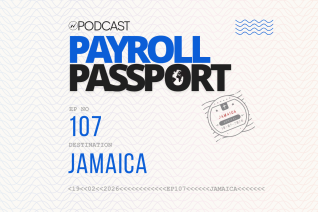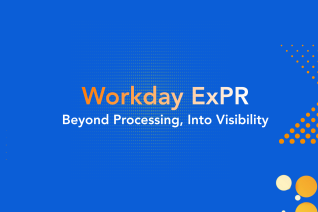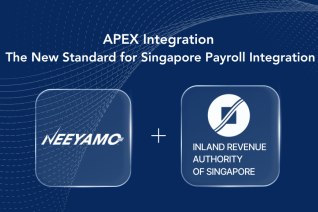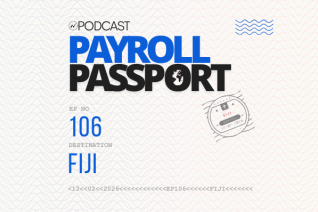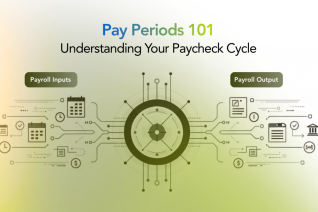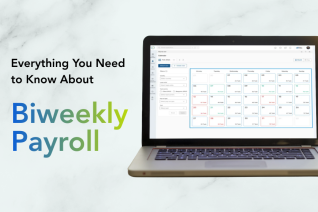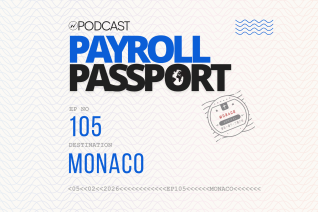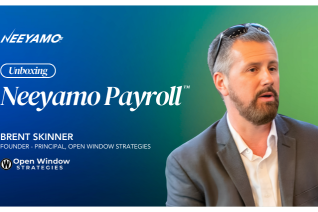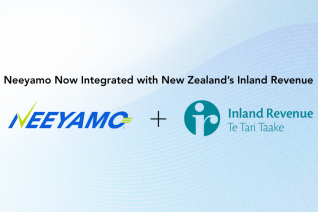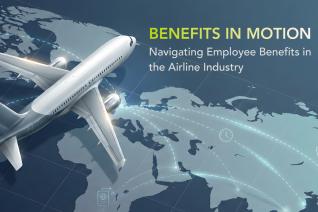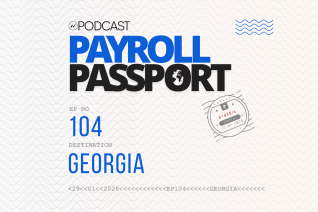Country Spotlight: Employer of Record in Denmark

When you think of Denmark, images of sleek design, green cities, and bikes outnumbering cars may come to mind. But beyond the postcards and global happiness rankings lies a robust and highly structured labor market that has made Denmark an attractive destination for global employers.
In this spotlight, we explore how the EOR model can help you hire in Denmark quickly, compliantly, and without setting up a local entity. From labor laws to tax structures and collective agreements, here’s everything you need to know before you bring your business into the land of hygge and high-tech.
Why Denmark?
Denmark has consistently ranked among the top countries for ease of doing business and digital readiness. It boasts a highly skilled, English-proficient workforce, world-class infrastructure, and a well-developed welfare system.
In the Employer of Record landscape, Denmark may not be the largest market, but it's steadily growing in relevance. The country’s EOR market is estimated at approximately USD 44 million in 2025, projected to grow at a CAGR of 4.75% to reach nearly USD 63.7 million by 2033. This reflects not just Denmark’s increasing openness to flexible work models, but also a broader trend among global organizations seeking smart, low-risk market entry points in Europe.
ALSO READ | Denmark: A Guideline to Payroll and Employer of Record
The Danish Employment Framework
One of the defining characteristics of Denmark’s labor environment is its reliance on collective bargaining agreements (CBAs) rather than statutory laws. Unlike many countries, Denmark doesn’t impose a national minimum wage. Instead, sector-specific CBAs set the standards for wages, benefits, working hours, and termination conditions.
- Entry-level workers in retail or service sectors typically earn between DKK 125–130 per hour.
- Skilled trades and manufacturing employees average around DKK 135–145 per hour.
- Professional and technical roles often start at DKK 150 per hour and above.
- Denmark has released updated income statistics for Q1 2025, which will be used to assess residence and work permit applications starting July 1, 2025.
- As of January 2021, salaries must generally be paid into a Danish bank account. Additionally, for all applications submitted on or after September 1, 2024, salary amounts must be stated in Danish kroner (DKK).
- Applications submitted after June 30, 2025, will be assessed based on the Q1 2025 income data. Those submitted between April 1 and June 30, 2025, will continue to refer to Q4 2024 statistics.
- Only fixed and guaranteed salary components, including base salary, holiday pay, and employer contributions to labor market pension scheme,s will count toward meeting the salary threshold. While employers may offer benefits such as housing or meals, these non-cash perks are excluded from the official salary assessment.
It’s estimated that over 80% of Danish workers are covered by such agreements, making adherence to CBA (Collective Bargaining Agreements) terms essential, even when hiring through an EOR. Non-compliance with these negotiated standards, even if not explicitly required by law, can lead to reputational risks and legal disputes.
Payroll & Contributions
Navigating Danish payroll isn't just about issuing payslips. It requires precision in handling multiple layers of deductions and employer obligations.
- Labour Market Contribution (AM-bidrag): Employees pay an 8% contribution on gross income.
- Pension Contributions: Typically, employers contribute 2/3, and employees contribute 1/3 to the ATP (Labour Market Supplementary Pension).
- Holiday Pay: Accrued at 12.5% of salary, mandated under the Holiday Act, with additional provisions under CBAs potentially pushing it higher.
- Other Employer Costs: Minor mandatory contributions such as to parental leave (Barsel.dk), occupational illness funds, and early retirement insurance add up to roughly 3-5% over and above gross salary.
The average monthly gross salary in Denmark is approximately DKK 38,000–40,000 (~USD 5,500–5,800), although this figure varies significantly by industry and seniority level.
What does this mean for employers? Hiring in Denmark comes with predictable but relatively high costs, particularly when factoring in vacation accruals and pension responsibilities.
TUNE IN NOW | Payroll Passport Ep 50. Denmark
Hiring Expats in Denmark
1. Updated Salary Standards
- From July 1, 2025, foreign workers must meet minimum income thresholds based on quarterly updated salary statistics.
- Jobs under collective bargaining agreements (CBAs) must meet sector-specific wage minimums, typically ranging from DKK 125 to 150 per hour or more, depending on the role.
2. Positive List Permit Schemes
- The Positive List covers jobs with labor shortages; approved occupations include IT specialists, engineers, and healthcare professionals.
- Typical salary offers for these roles range from DKK 300,000 annually (~USD 44,000) and upward.
- Work permits under these schemes generally last up to 3 years and are renewable.
3. Employer Certification and Compliance
- Employers wishing to hire from the new 2025 Collective Agreement-Based Business Scheme must be certified by SIRI; certification lasts 3 years.
- Eligible employers must have at least 10 full-time employees and adhere to CBAs.
- Minimum salary under this scheme is DKK 300,000 per year per employee.
4. Expat Tax Regime
- Highly skilled expats can opt into the special expat tax scheme, paying a flat rate of 32.84% tax (including labor market contribution) instead of up to 55% progressive tax.
- To qualify, expatriates must earn at least DKK 78,000 per month (approximately USD 11,500).
- The tax scheme is valid for up to 7 years.
5. Permit Processing Times and Procedures
- Work permits for expats generally take about 1 month for processing under SIRI.
- Foreign employees may begin working after completing biometric registration, even before receiving their final permit.
- Permits typically last for 3 years and can be renewed as long as employment continues.
The Value of an EOR in Denmark
Denmark's employment landscape is rules-heavy, but not in the traditional legalistic sense. Instead of government-imposed mandates, there’s a high reliance on social dialogue and self-regulation, which can be hard to navigate for foreign employers. Understanding the expectations baked into CBAs, data privacy obligations under GDPR, and nuances of local HR practices requires experience—and missteps can be costly.
- Drafting and maintaining locally compliant contracts.
- Processing payroll in alignment with Danish tax and labor requirements.
- Managing pension, insurance, and holiday pay administration.
- Providing statutory benefits and ensuring adherence to collective agreements.
- Handling compliant offboarding procedures and dispute management.
In essence, an EOR like Neeyamo takes on the full scope of employer responsibilities—ensuring that you remain compliant, efficient, and risk-free while operating in Denmark.
Strategic Benefits of Using an EOR
- Faster market entry: Skip the months it takes to set up a legal entity.
- Reduced overheads: Avoid legal, HR, and administrative costs tied to incorporation.
- Compliance made easy: Stay aligned with evolving tax codes, CBAs, and GDPR requirements.
- Scalable operations: Flexibly scale your workforce without long-term commitments.
- Localized expertise: Partner with teams who understand the cultural, legal, and regulatory landscape.
In a country where tradition meets innovation, and where employee protection is a cultural cornerstone, having an EOR helps you navigate complexities without compromising on compliance or experience.
Why choose Neeyamo for your EOR needs?
Neeyamo helps you hire people in 150+ countries, including Brazil. We take the hassle out of global hiring so you can focus on your business. Still not sure? Here’s why we’re a great fit:
Worried about legal stuff? We’ve got compliance covered.
Worried about costs? You don’t need to open a local entity—we’ll handle it all.
Worried about mistakes? We help reduce risks and avoid fines.
Too many HR tasks? From day one to the last day, we’ve got it handled.
Need help? Our support team is here for you 24/7 in 50+ languages.
Neeyamo? Your key to effortless global expansion!
Latest Resources
Stay informed with latest updates
If you're curious and have a thirst for knowledge pertaining to the HR, payroll, and EOR universe, don't miss out on subscribing to our resources.




